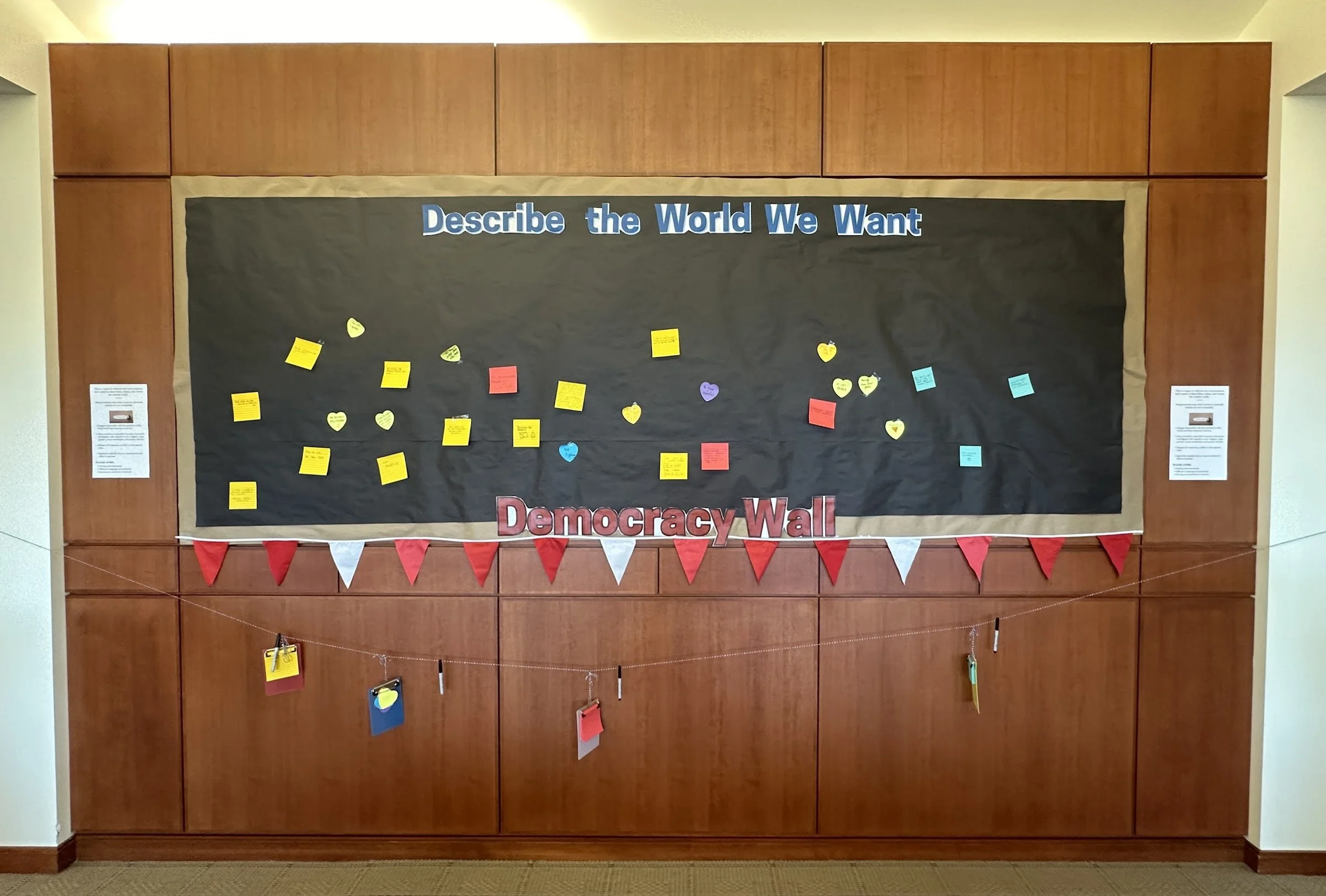Democracy Wall Adorns Library
The Democracy Wall is a bold new initiative by the James A. Cannavino Library, where students are encouraged to post their ideas and viewpoints openly and anonymously, generating dialogue and encouraging critical thinking.
The Democracy Wall stretches across a wall of the James A. Cannavino Library's second floor. Photo by Owen Whelan '27
The James A. Cannavino Library has opened the academic year with an interactive exhibit featured on the library’s second-floor wall. The self-captioned “Democracy Wall” features packs of adhesive notes and fine-tipped markers on a string. Students are encouraged to write a message and affix it to the black bulletin board, defining what they see as an ideal democracy.
“The idea for the Democracy Wall emerged from a desire to create more spaces for open dialogue on campus,” said Dr. Sasha Biro, lecturer of philosophy and academic coordinator of Diversity, Equity and Inclusion. “The concept evolved from the recognition that students, faculty and staff needed a structured, yet open space to engage with one another in a meaningful way on important issues.”
Inspiration for the wall comes from various sources, including the novel “Why Community Matters” by Nick Longo.
The wall is intended to promote critical thinking, a value that Marist College holds close. The anonymity of the Democracy Wall allows students to express their true, yet differing viewpoints while also acknowledging the views of others. It also falls in line with Marist’s goal of creating an “expansive community” that is both inclusive and mindful of people’s differing backgrounds and perspectives.
Even with controversial topics, the wall is moderated. Reminders to keep discussion respectful are posted on either side, and staff have made clear that any hateful speech will be removed.
“[The guidelines] were designed to encourage open expression while preventing harm or harassment,” said Dr. Biro.
Existing adhesive notes on the wall include phrases like “live mindfully,” “where people respect others’ perspectives, differences and ways of life,” “food should be guaranteed” and “free education.” One note in a yellow heart calls for the banning of “Felix Ever After,” Marist’s 2024 common read. A square-lined one asks the world to help everyone, not just people who are rich. A blue heart simply reads “no fighting.”
Student and faculty reaction has been supportive of the Democracy Wall project. Elizabeth Clarke, coordinator of library instruction, has expressed that students have been interacting with the wall of their own volition without any complaints.
Future efforts are focused on the expansion and archiving of the wall. Faculty involved with the project have considered expanding it to other locations on campus. The wall’s prompts could be topical in encouraging participation from even more of the Marist community.
“We hope more students will actively participate, not just by posting their thoughts, but also by reading and responding to others’ ideas, creating an ongoing conversation,” said Dr. Biro. “I would love to see the wall serve our Marist community as a space to practice engaging in healthy democracy — as a space of civic possibility.”
